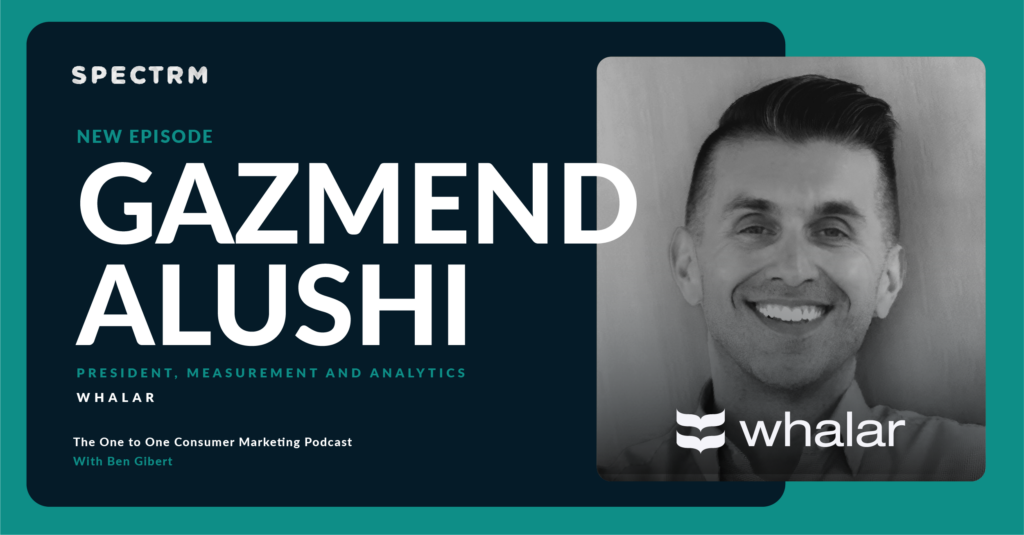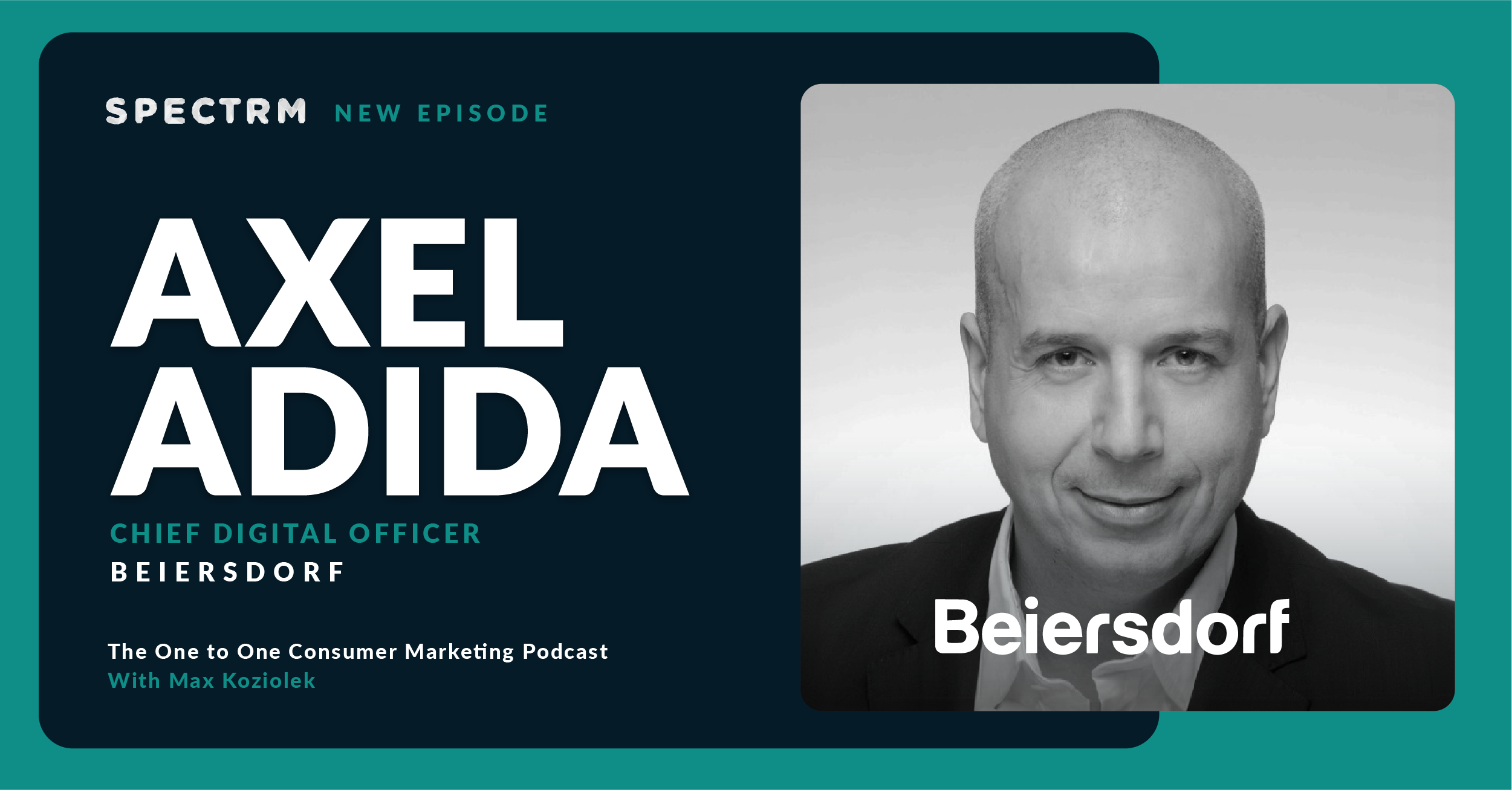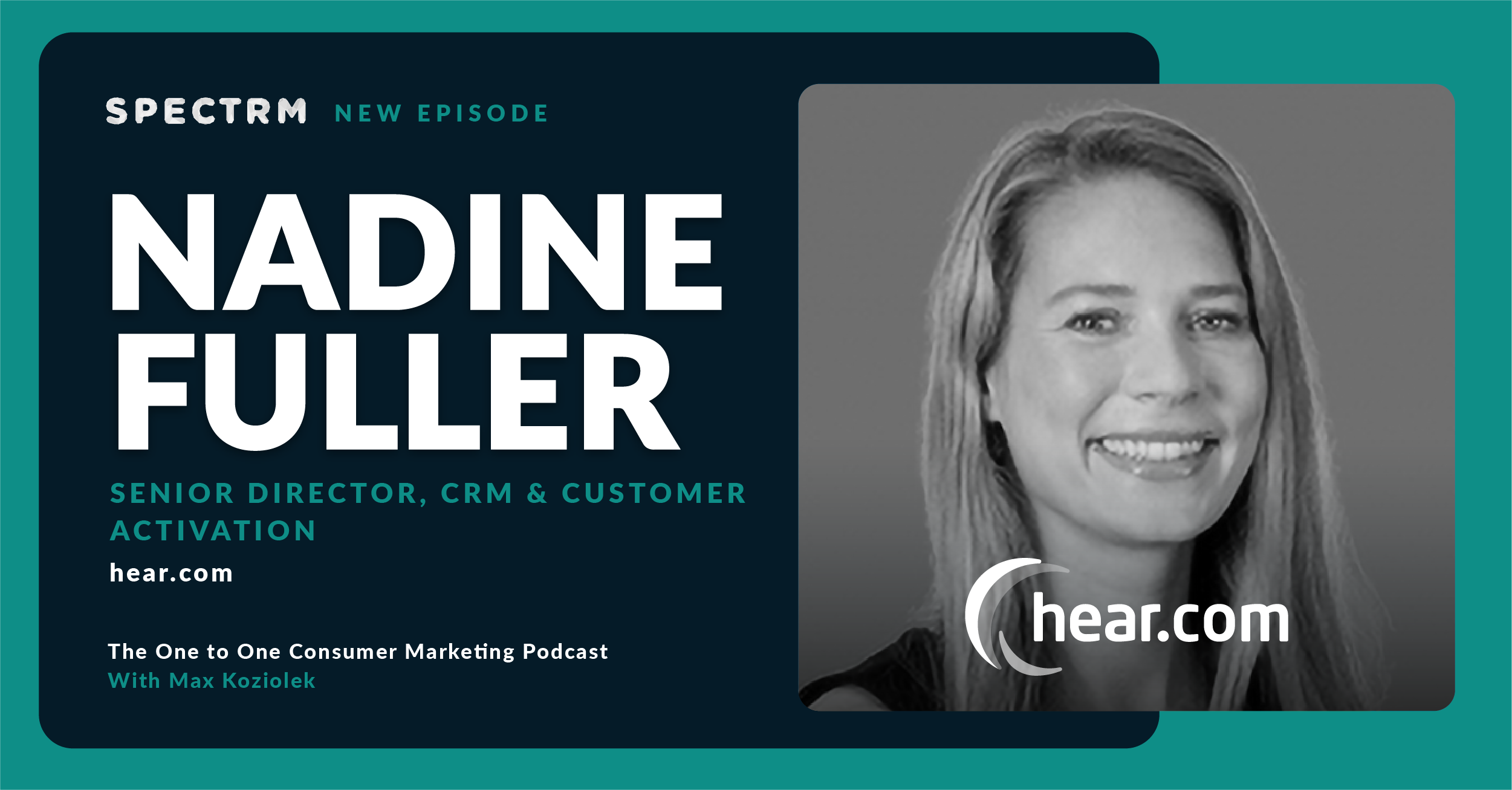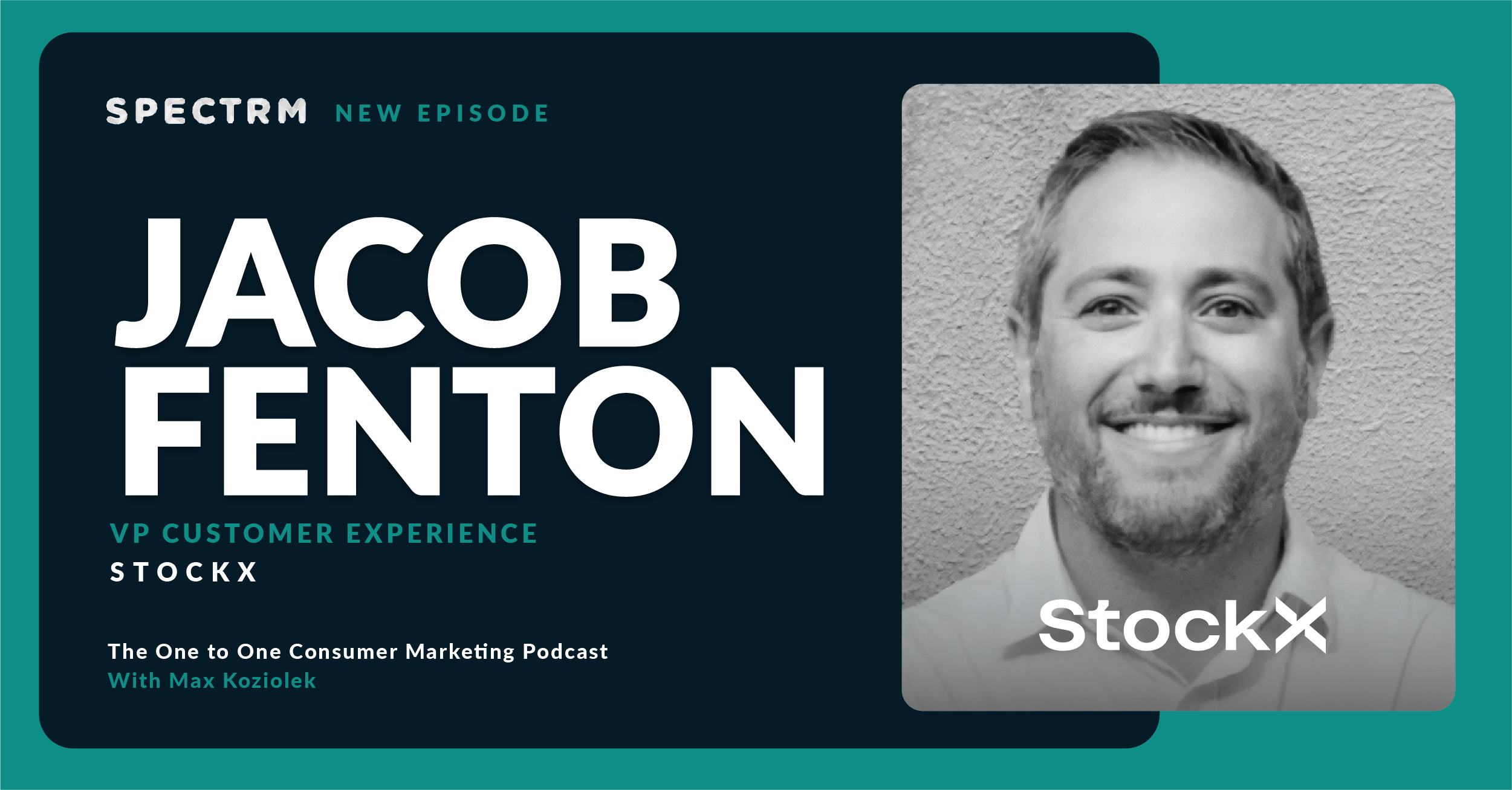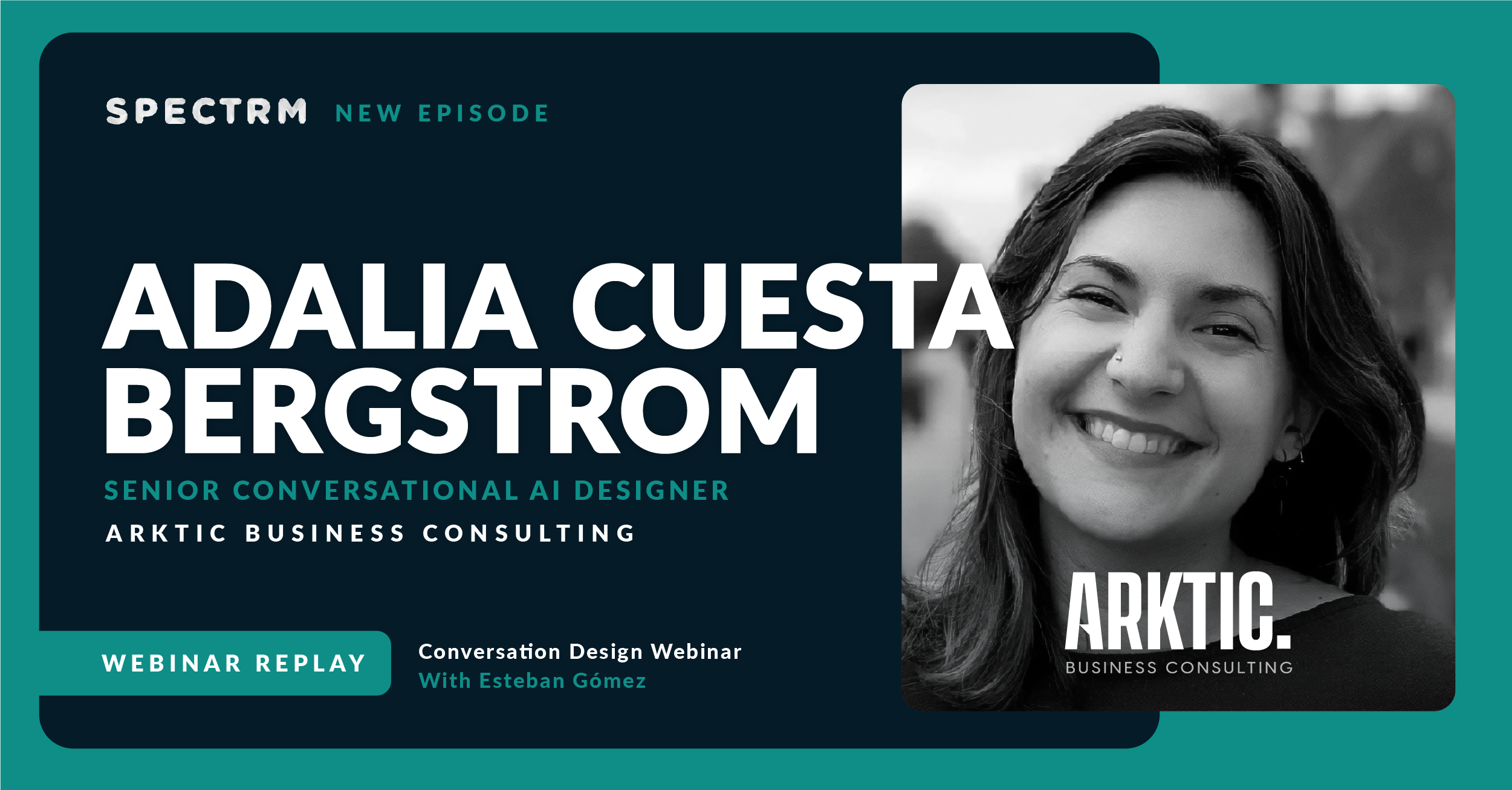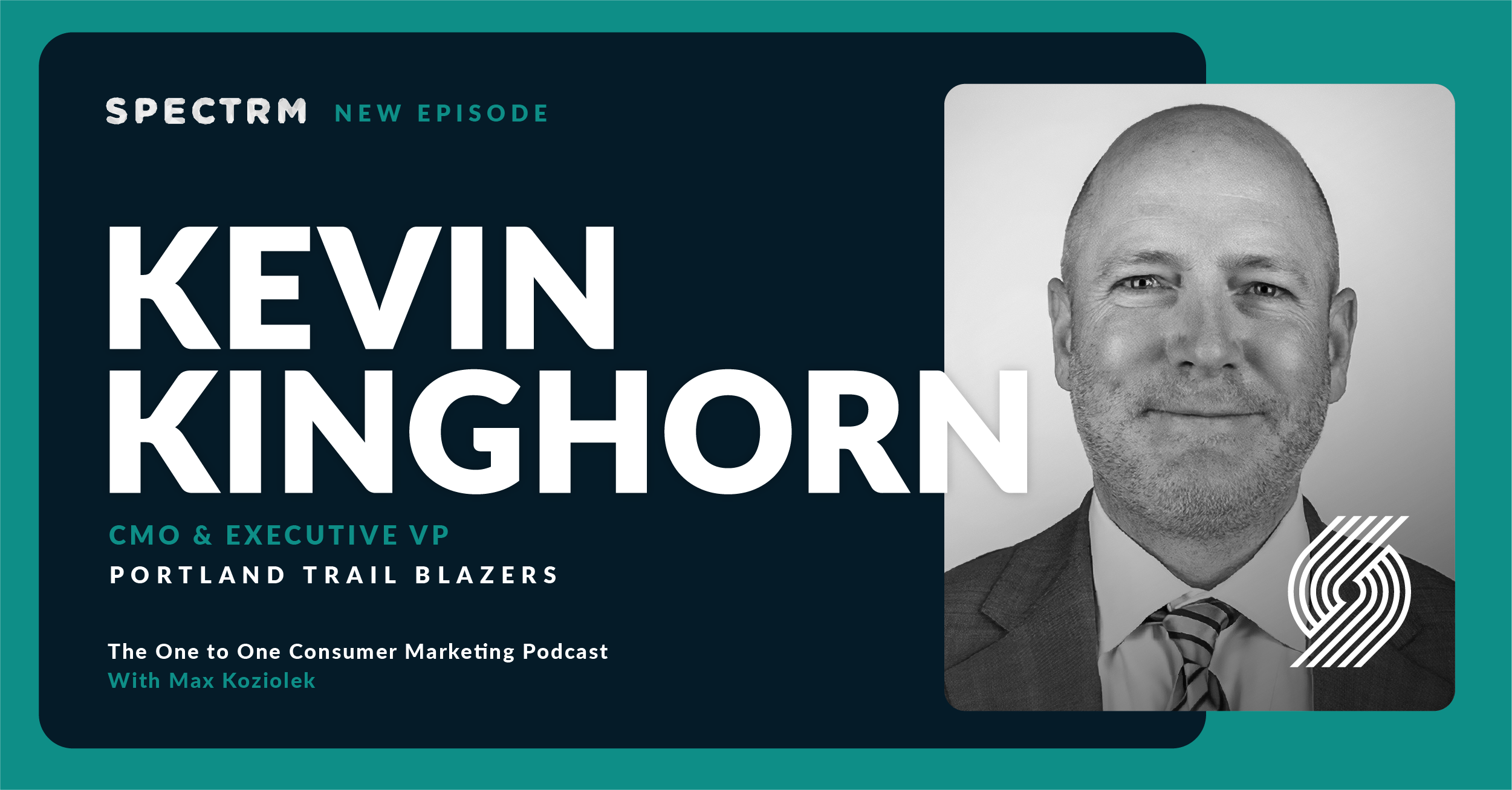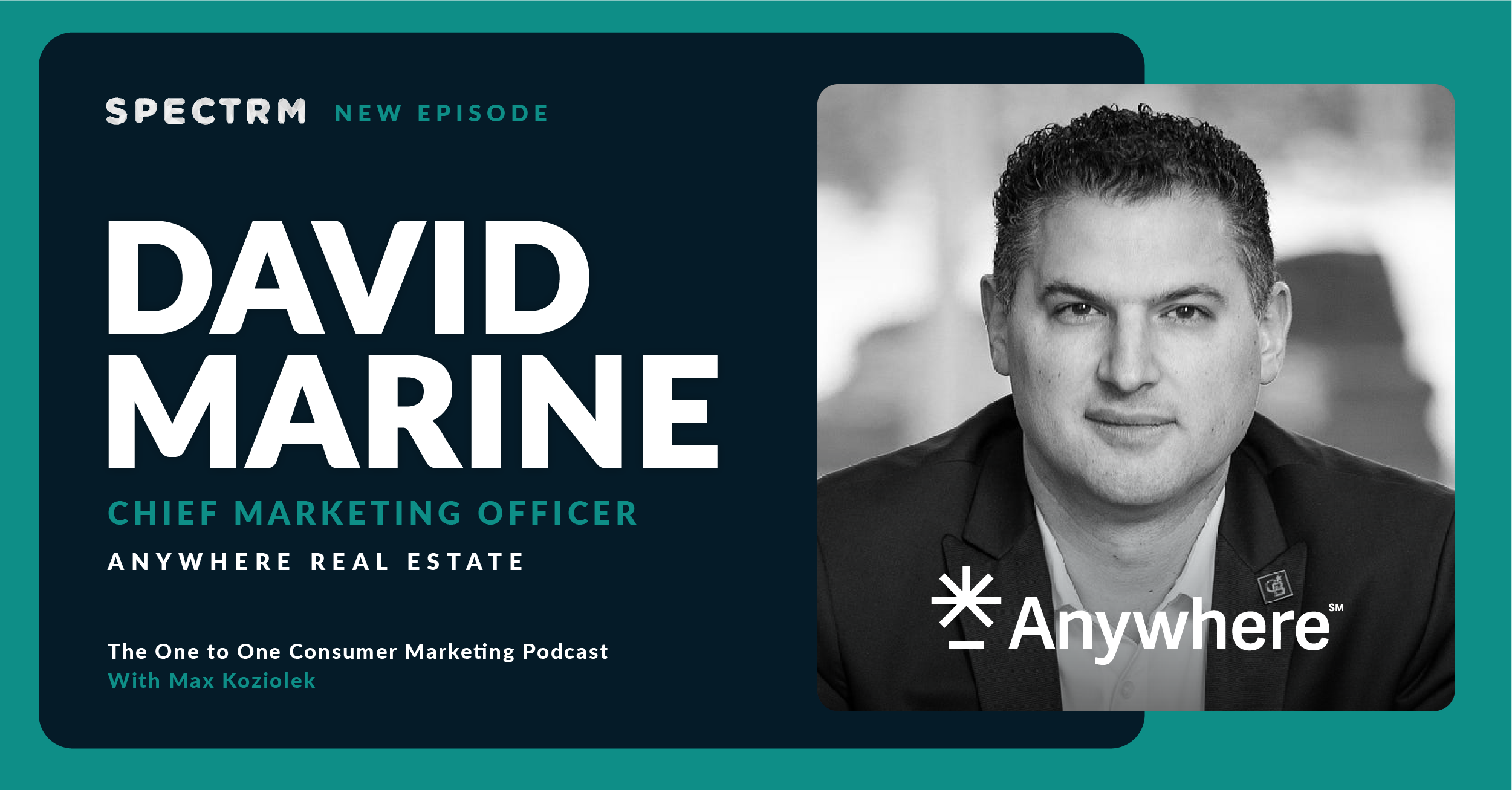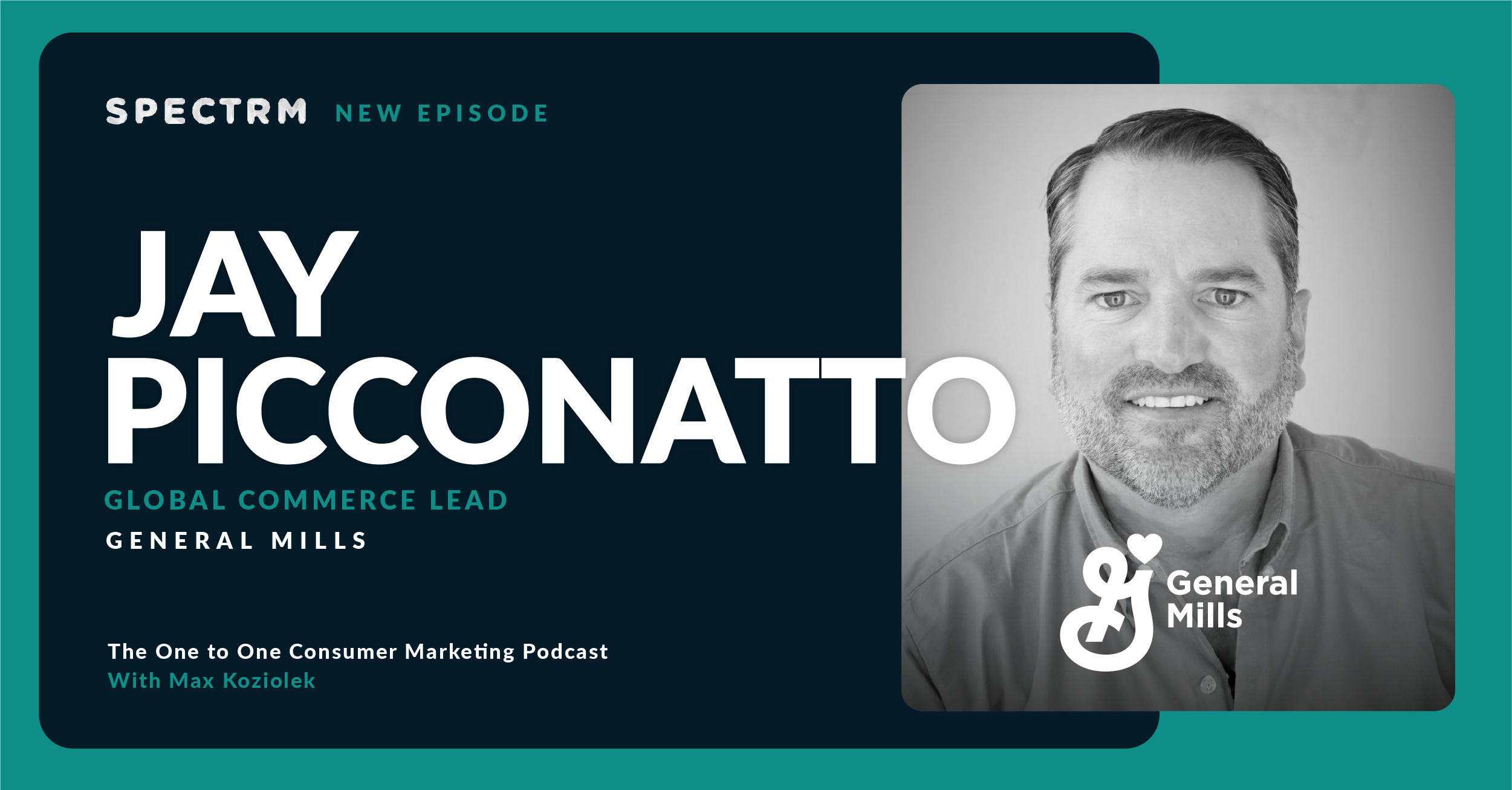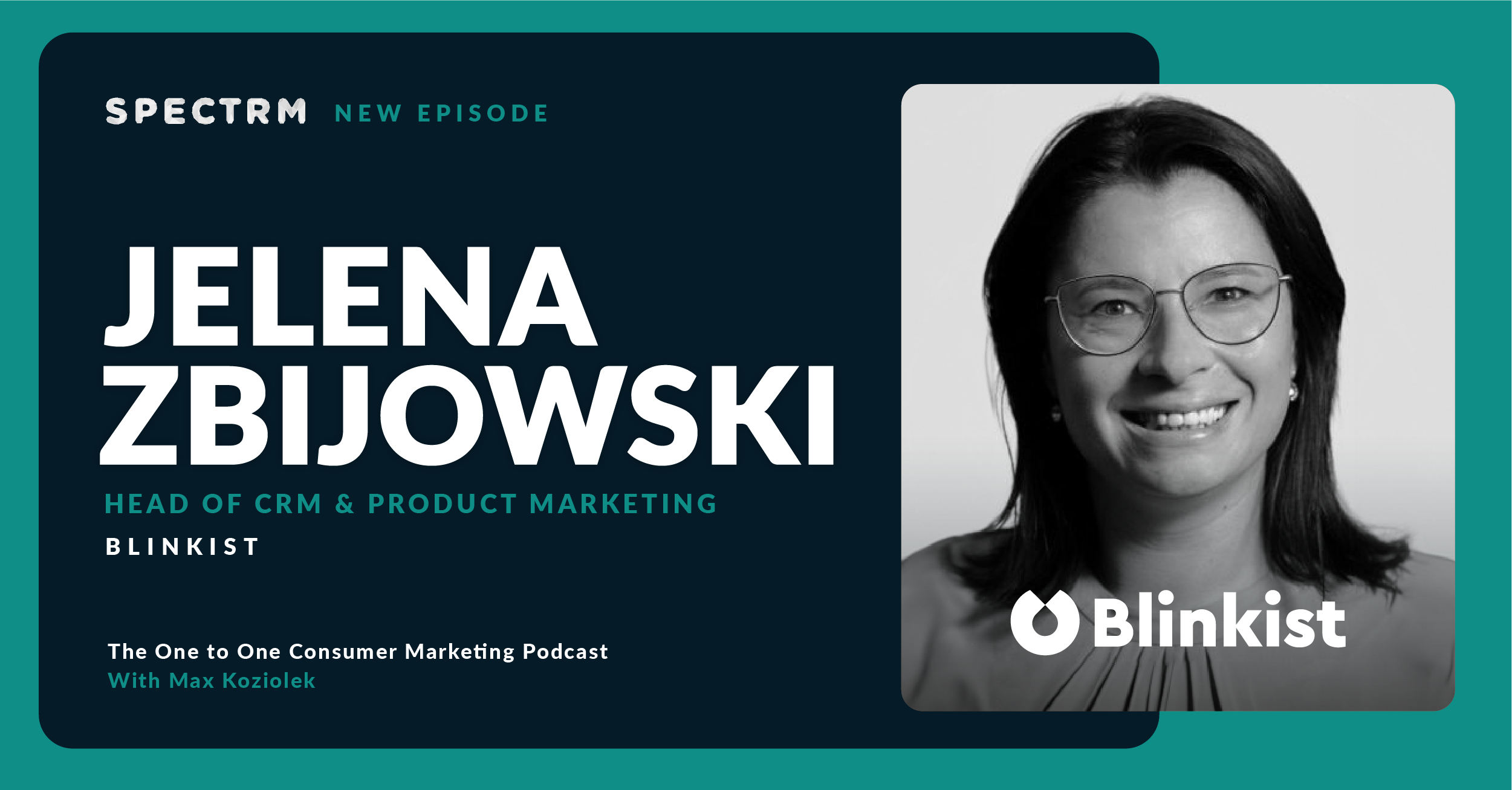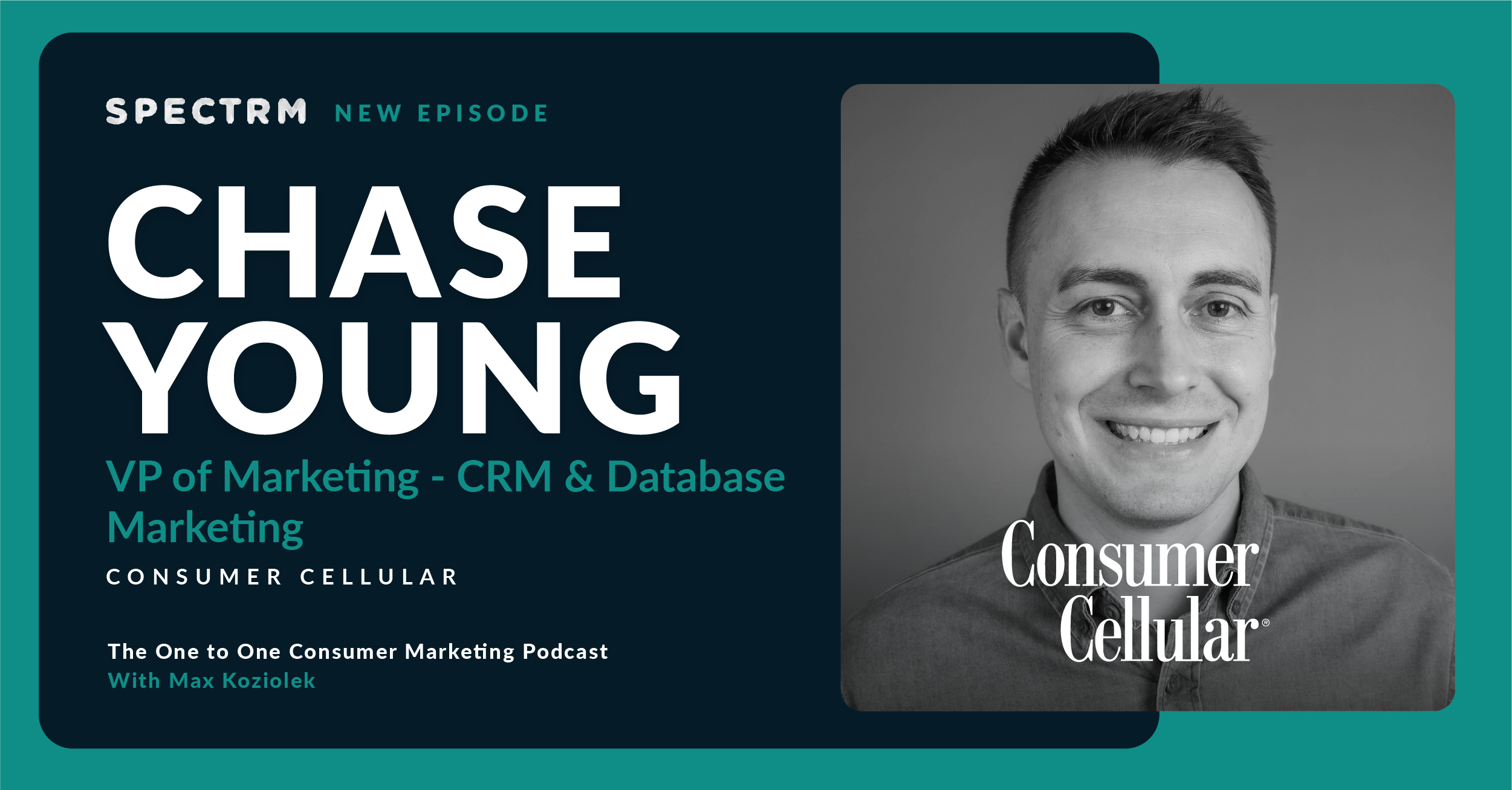Summary
Ben speaks with Gaz Alushi, President, Measurement and Analytics at Whalar, a creator commerce company. They discuss the current state of consumer marketing, and why so many marketers are getting caught up in tracking, rather than what they should be doing to see more impact: measuring. They talk about the ways in which measuring can help you better understand and target your customers, better strategies for aligning marketing efforts with business outcomes, how to bring value to consumers through creator content, and why creativity will play a big role in the future of consumer marketing.
Topics discussed
- Gaz’s career evolution as a self-proclaimed nerd, from traditional research in a number of firms, to working at Facebook and Snap, before becoming the President of Measurement and Analytics at Whalar.
- The current state of marketing, including the “analysis paralysis” that marketers face today, and why they need to shift their strategy from tracking to measuring.
- How today’s conversation around privacy is shifting, and how Apple has become a major player in moving how data is tracked into the hands of the consumer.
- What good measurement is, and how meaningfully measuring the signals you have can help maximize your impact with individual customers and segments.
- How to prioritize your marketing strategy, including tying it to business outcomes, the necessity of knowing what you’re measuring, and why solving for one thing can provide better awareness of your marketing efforts than a “boil the ocean” strategy.
- How to meet consumers where they are, how to bring value to them, and why consumers are responding more favorably to creator content instead of brand content.
- Gaz’s advice to marketers, including why it’s crucial to make consumers care, how to better respect consumers, and why ruthless prioritization is necessary in your strategy.
- Why the future of marketing will be in the hands of consumers, and why creativity is making a comeback.
We've forgotten the magic of marketing, making a connection with consumers, bringing them along in the journey, making them adopters and adorers of your brand, as opposed to, who can we get in the immediate short term and just hope that they love us until the end of time?
Guest biography

- Seasoned measurement leader and overall professional nerd.
- While I enjoy geeking out on things like lift methodologies, attribution models, identity graphs, and overall ads effectiveness, what I love most is crafting a story on how people behave and how marketers can leverage the whole digital measurement ecosystem to achieve their goals.
Company overview
Whalar is a global creator commerce company that enables creators, brands, and the world’s leading social platforms to work better together to drive business growth for all. We help brands stay culturally relevant through strategic creator relationships that deliver entertaining and must-see content at scale.
Industry: advertising | www.whalar.com
Subscribe to the podcast newsletter
Transcript
00:01
Ben
You. Hey, everyone, and thanks for listening to and watching The One to One Consumer Marketing Podcast. Today I’m speaking with Gaz Alushi, who is President of Measurement and Analytics at Whalar, a leading influencer marketing company. Gaz, thanks so much for chatting with me today.
00:18
Gaz
Thanks for having me. Really looking forward to it.
00:21
Ben
Yeah, absolutely. For our listeners who can’t see your background, I got to call it out because you mentioned that a lot of people think it looks fake, but it looks like you’re right. Downtown Manhattan with a great view.
00:34
Gaz
Yeah, I call this my very lucky COVID deal apartment, so you’re going to have to blast me out of it.
00:44
Ben
Nice. Well, before we get started, I’m actually personally very excited about this episode. It’s going to be a little different than our usual ones because you have a ton of experience in measurement, reporting and analytics across a number of different companies. That’s what we’re really going to dive into today. Before we do that, can you tell everyone more about yourself, your background, and then how you ended up in your current role at Whalar?
01:10
Gaz
Yeah, so my entire career I’ve been a nerd. I was that growing up, and so I just embraced it in my professional life. I did traditional research for about a decade. Miller Brown through Cantar IRI, focusing on traditional measurement, brand health trackers, copy testing, syndicated shopper data. For the past decade, I’d been in tech. A long stint at Facebook before they were Meta. For me personally, I keep having to call them Facebook. Most recently, I spent three years at Snap. I think it was such an amazing experience to have with both of them from a measurement front. Right. With Facebook, when I started, they really didn’t have a mobile presence. It was all desktop and if anyone remembers, just on the right hand side. How do you measure the impact for advertisers? At Snap, I started right when CCPA was coming out and then Apple launched their ATT framework.
02:13
Gaz
It turned into how do we have deterministic measurement in a privacy first world? Coming to Whalar, it’s been fascinating looking at the creator economy and how we can map on the same business objectives to what brands are doing with creators. I embrace that I’m a nerd, and it’s been fun for me to explore it in this way.
02:35
Ben
Yeah, well, absolutely embrace it. I’m actually excited to nerd out on measurement and analytics in this episode in particular. So I’m happy you’re game for that. You have been, like you said, Facebook before meta, you’ve been at Snap, that shift due to CCPA, all of this stuff coming out with ATT, I’m assuming it has really kind of affected your view of what the current state of consumer marketing is today. I mean, you mentioned deterministic measurement in a privacy first world. Can we get into that? What is the current state of consumer marketing and measurement for you?
03:15
Gaz
I’m just going to be perfectly blunt. We have a great deal of analysis paralysis happening in the industry right now. What’s fascinating is everyone talks about deterministic measurement, but when you dig into it, what you see is a lot of brands and a lot of advertisers are talking about tracking versus measurement, and we have to decouple those, right? Measurement is about holistic effectiveness to understand what worked, what didn’t, how to optimize for the next time, what was the value you actually got for running the media. Tracking is more about how we are making sure we get in front of the right person at the right time, and how do we actually understand what they did at the individual level? I think the current state of measurement is we’re back to the future, right? And I think it’s a good thing. What CCPA did was really a forcing function for a lot of platforms and a lot of brands to clean up their act, right?
04:10
Gaz
Hey, what’s going on here? I have to go back to my experience at Facebook 2012. This was a whole new world. Not to quote Disney songs, but this was really, what can we do? Let’s figure it out. And I bristle a little bit. When people are like, oh, it’s all coming from a bad place. You knew what you were doing. I promise you. Everyone was like, hey, this is a really efficient way to do things. Let’s actually talk to people where it’s most relevant. Let’s actually give people ads that they’re going to enjoy the most. Fast forward a decade, and I think a lot of marketers have lost the plot. Instead of building great creative that delights the consumer and builds an affinity for the brand, it’s how do we follow them and force them to look at our ad? Because we think this is the best product to the planet.
05:05
Gaz
You’ll notice in all of that, I haven’t used the word measurement because that’s not measurement. Measurement is actually, hey, let’s look at this ad. Did it drive awareness? Did it drive consideration? Did it drive conversion? Let’s look at this campaign. What is the CFO going to look at for this campaign? The CFO doesn’t care about tracking. The CFO cares about at the end of the quarter, how much money did we make and how much money did we spend, and what can I go tell our investors? I think there’s a reckoning happening right now, and that’s the current state of measurement. Apple has really changed the game because it’s a private company that has done what no regulator in any government has done, which is, oh, no, we’re putting the decision in the hands of the consumer. When you have 80% of a consumer saying, ask app not to track its time to think about measurement in a very fundamentally different way.
06:00
Ben
Yeah, thank you for that overview. I think that’s very interesting. There’s so many things we can touch on there. I’d love to get into how you think about measurement in a very different way. Before I do, I have to ask because you brought up Apple, you mentioned att, you’ve been in this space for long enough for you. Was that a big kind of revenue grab in the advertising landscape from Apple kind of getting into Facebook’s arena? Or for you, is it really more like they’re putting that power in the hands of consumers? Because I think marketers see this in different ways, and I’d love to get your perspective.
06:36
Gaz
Well, I think if you look at the megatrends that are coming up and what a lot of the think tanks are looking at for 2030, right, and the decade that follows, data is going to be at the center of every conversation. The conversation around privacy is going to look very different. Instead of saying, no, you can totally trust us, you just don’t understand how good it is for you to give us this data. It’s going to be very user centric. People are actually going to have the ability to say, well, I’m okay with this site having my data, but I’m not okay with that site having my data. I was just browsing, looking for a gift. That doesn’t mean I want you to follow me to the end of time to buy this product. I think what Apple did was truly a consumer marketing play, right?
07:21
Gaz
There is no consumer who hears, we’re putting your privacy first and we’re blocking platforms from tracking you, saying, I don’t like the sound of that. That sounds really bad, right? It’s a great marketing play, but also it invites Apple to have a seat at the table to be a broker because they’ve never really had an ad network. They’ve tried in the past. The App Store will compartmentalize that in a separate way. In terms of the Fortune 50 companies running video ads, like Apple doesn’t have a network for that in a meaningful way. I think what this has done is it’s allowed them to have a seat at the table in the data space and the analytics space to say, no, you’re using IDFA in all of these ways that it was never originally intended. If you look at the MMP space, the mobile measurement partners, that was a feature, right?
08:16
Gaz
Like, to be able to understand, like, did a person install an app? Did they open it? Did they convert in the app? That was a feature that blew out to be an entire industry within the advertising ecosystem. Apple never intended for that to happen. I think this is their way of reining things back in and being in tighter control of consumer data to prevent things like bad actors from using consumer data in a bad way, to prevent consumers from feeling like they were out of control, to actually institute transparency in a meaningful way. Sure, I’m sure there was some bad blood from the tech companies that fed into that and it turned into a bit of a, shall we say, p****** match. Professionally and personally, I think what Apple did is the best thing that could have happened to the industry. It’s forcing a lot of people to really think about marketing in a consumer centric way yet again.
09:10
Ben
Yeah, I totally agree as far as forcing such a big sporting function given their size in the market. I also agree it was an incredible PR win on the part of Apple to really push this from a privacy perspective. I think I’m interested in the way that you talked about IDFA and that being kind of a feature that created an entire industry that exploded because I think it became such a key part of how digital marketing is done. I think those signals, I’d love to hear more how you think about because you talked about separating tracking from measurement, but obviously tracking enables measurement to some extent because the signals that you’re getting from those technologies enable you to really do good measurement. Can you talk about those differences for you and kind of what is good measurement?
10:04
Gaz
Yeah, I liken it to you bought things online, right? You bought things from a DTC, from an online storefront, I’m assuming it’s the year 2023. How often do you experience that marketer? They’re in your inbox with coupons and deals that expire before the product actually gets in your hand.
10:35
Ben
Yeah, that happens all the time.
10:37
Gaz
They have all the data they need through their first party and they don’t use it. They don’t use it to actually be efficient. They don’t use it to create a great consumer experience. They don’t use it to actually say, hey, hang on, this person just bought a congratulations gift for new parents, for their baby, perhaps. Let’s just think here, they’re not in the market for non stop coupons for babies things because they just bought a congratulatory gift. The way I extrapolate that into tracking and measurement is marketers are clamoring for more signals. You look at the signals that are in place where, yes, the ultimate signal is conversion. That’s the ultimate one. There’s also a did they add to basket? Did they visit other products on the same page? Were they looking at the same category? Did they go off site to go to a search engine to look up the product elsewhere to find a better deal?
11:39
Gaz
There’s all these signals that you could potentially get. The problem is, with all these signals, no one’s done a meaningful analysis of the fidelity of the signal, right? Like, yes, somebody may have added it to their cart, but then they realize the coupon code they tried using wasn’t good. They realized that, well, hang on, this actually is more expensive than I thought it would be, and I didn’t want to buy it. Or maybe they were just adding to cart because it was a slip of the thumb. Like there’s so many different functions that happen. I mean, if you look at anyone analyzing Google Analytics data for their DTC business, bounce rate is a huge thing, right? You never know if somebody swiped up on an ad or clicked through on an ad if they just fat thumbed, it’s a way of actually determining what the driving factor was.
12:28
Gaz
I realized I took the scenic route with that answer. It comes back to tracking can enable measurement, but tracking in and of itself is not measurement. If you’re actually using signals for the purposes of tracking, you want to look at the entire audience you’re going after, not individual users. You want to look at cohorts that make sense for, hey, what can we glean from this? Are we finding people who are deal seekers? Are we finding people who are trend seekers? Are we finding people who are necessity shoppers only? How can we actually maximize the reach that we’re gaining out in market, as opposed to going to spray and pray mentality of email blast, arbitrage blast through third party consolidators and ad networks? How are we actually making it meaningful? And then you measure that. You really measure the impact of a campaign until the end of the campaign.
13:24
Gaz
I don’t care what category you’re in, because fundamentally, if you’re selling, let’s say you’re a beauty product, very few people upon their first exposure to a product are going and immediately converting on that product. And mind you, there’s exceptions, right? There’s always going to be the creators and the influencers who have a staunch audience, but they’re teasing a drop of a new makeup kit. They’re teasing the drop of a new lipstick. If you have people are obsessed with Nikes, and they always know when there’s about to be a new drop. It’s not new information when they see it in an ad the first time. We’re ignoring other signals in terms of reaching frequency and the meat and potatoes of what real media is and trying to find a quick fix solution. That’s what I call signal hoarding, which is kind of what I call it.
14:19
Gaz
It’s really an attempt to do a quick fix solution. We’ve forgotten the magic of marketing, making a connection with consumers, bringing them along in the journey, making them adopters and adorers of your brand, as opposed to, who can we get in the immediate short term and just hope that they love us to be at the time?
14:37
Ben
Yeah, I think that’s such a great overview. The distinction between obviously how downstream funnel the conversion is, right. What that does, and obviously a lot of marketers have gotten used to this idea. Okay, you start with high volume, so you start at the top of the funnel, and then you can slowly shift your conversion optimization down. I think one of the things that Facebook has honed so well is they have one of the best optimization algorithms in the market in terms of really bringing that to the right people and that’s why it hurts so much when those signals started disappearing. I also love this framing of this idea of Signal Hoarding. That really valuable for especially larger brands? Because I think Signal Hoarding is probably much more common for smaller brands. Like if you don’t really fully comprehend marketing and you’re kind of an SMB that is on Facebook, on Instagram, Twitter, whatever you want, you don’t really understand measurement holistically in the same way that other marketers do.
15:41
Ben
In that case, the signals and the tracking is what matters to you because it’s really all . I think you’re suggesting obviously a better approach, especially for large brands, is to think about measurement, more holistically, to think about cohorts, and then to really allow campaigns to finish before you start evaluating effectiveness because you’re getting a much more I mean, you mentioned fidelity too. You’re getting much more accurate understanding of what’s actually going on. So much to unpack there. I mean, for you, what are the biggest challenges for marketers and businesses that are actually trying to take this more holistic approach to measurement?
16:21
Gaz
Your marketing strategy should tie back to a business outcome. And it sounds so basic, right? Like this is something everyone learns in business school. This is something everyone learns when they’re starting out in their career. There is a truism in statistical analysis. Like when you go into school, of good data is better than a lot of bad data. Going back to this Signal Hoarding, you don’t know what these signals are actually telling you about consumer behavior. How can we actually understand what you want to do? It goes back to solve, for one thing, what’s your KPI? Are you a new brand and you’re trying to gain awareness? You’re going to need to give it time. Are you an established brand and you’re trying to get lapsed users to come back? Hey, actually just go straight to the end of the funnel. They know who you are, they know what you’re about.
17:08
Gaz
Is it price discounting? Is it availability? It shipping directly to there’s different ways you can approach it, but it should always be one thing. The boil the ocean mentality is what you just described, right? These platforms with their optimization tools. Mind you hit the nail on the head. Facebook says one of Meta’s is one of the best out there. I was there when they first launched it and it was game changing. Advertisers didn’t need to think about, like, well, hang on. What time of day and which segment and which surface? It did it for you, and it made their ad buys so much more efficient. However, more platforms, crowded marketplaces, right? Like, no one’s using a single app every day. No one’s just on Instagram, no one’s just on TikTok, no one’s just on Snapchat. They’re using multiple services based on where their headspace is and what they’re doing.
18:04
Gaz
So go back to your North Star. Are we trying to drive awareness? Are we trying to drive trial? Are we trying to drive conversion? Are we in a PR crisis? And we’re trying to change the narrative. I think a really great example of this is way back. This was probably about ten years ago. It was novel. We could do purchase based targeting. We could actually map back what people bought in store to their online presence and serve them the right ads. This was the worst thing we could have done when I was at Facebook because marketers didn’t comprehend it. What they were trying to do is they were trying to go after their loyalists. They were like, we want to talk to the people who love our brand. I remember there was this one meeting where there was frustration because a marketer wanted to go after their heavy diaper buyers for their brand.
18:57
Gaz
Were like, well, do you want to go after competitor brand? No, I want to talk to our loyal shoppers. Why wouldn’t I want to talk to them? It finally got to a really contentious point where it was, an extra million dollars in media isn’t going to make babies poop more. They’re already heavy buyers of your diapers. What is your North Star like? What are you trying to map back to? When we dug into it, they wanted to conquer it. Okay, so let’s target medium buyers of your competitor set. This is where I go back to the whole fidelity. So for marketers, it turns into control. For one thing, in your campaign, what are you trying to do? Build a learning agenda? If you want to go across the entire funnel, what are your KPIs for awareness? What are your KPIs for consideration? What are your KPIs for conversion?
19:45
Gaz
Because if you take those conversion APIs and put them right up front when you’re launching the campaign, no one’s going to have a good time. It’s going to be a bad experience for the marketer, it’s going to be a bad experience for the platform, and it’s going to be a bad experience for the consumer.
20:01
Ben
Yeah, I love that the approach of boiling ocean and not really distilling what is the core thing you’re trying to achieve is such an easy thing to do when you are operating in, like, a black box, right? Because ultimately, that is what it is. You’re just funneling media by into a black box. You’re hoping that the signals do all the work. I would argue that it’s probably bred a whole generation of relatively lazy social media marketers that don’t understand you’re. Right. You’re much kinder than I am. I think there is an opportunity with all these changes. CCPA, GDPR doing the same thing. It’s even happening in email, right? Apple mail privacy. Like getting locked out of those signals as marketers. Taking this much more holistic approach is going to be key. Right. In that context, you mentioned zero party data, kind of first party data towards the beginning of the interview.
21:07
Ben
Every brand is trying to personalize, to some extent, being truly customer centric is providing a personal, almost one to one experience with them. Right? How do you do that in the context of what’s going on?
21:20
Gaz
It’s really about meeting the consumer where they are. One of the reasons I joined Whalar is the creator economy is exploding, but marketers are still learning how to leverage creators. What it really comes down to is, to your point that zero first party data because these creators have cultivated these meaningful communities of people who think the same way about certain topics, right? Makeup artists who have created these communities, you can have all walks of life in their audience, but everyone’s there because they want the content on makeup artistry, you could have people who are creating content about woodworking. You can have all walks of life. What this has introduced is the ability to actually talk to these consumers in a meaningful way. You look at what the brands have for their own in house data sets, they should be able to glean. What do we know about these people?
22:16
Gaz
Are we talking to people who are deal seekers? Are we talking to people who are chronic renovators, chronic houselifers? Are we talking to people who are stockpilers? There’s different ways that they can segment their own CRM, but then find a way to engage communities in a meaningful way. We’re moving away from this scorched earth mentality of get in front of everyone on every platform with every signal in every way we possibly can to how do we actually bring value to the consumer so they bring value to us. It goes back to what I was saying. I’m using creators as the example here because we see creator content outperform brand content all the time, because creators have cultivated trust, authenticity, and meaningful dialogue with these people. If you think about a brand’s post, the comments are usually pretty spammy, they’re pretty scammy, or they’re pretty negative.
23:12
Gaz
You see a creator post when they’re partnering with a brand, they’re transparent about it. Hey, we’re in partnership with this product. The trial for this audience is through the roof because the brand has discovered a key insight in their first party data. Hey, we know people who try our makeup. Are people just entering the category. These are people who don’t have a lot of money. These are people who want to experiment, or these are people who are trying to find their look. They haven’t found it yet. Let’s find creators who have audiences that do that so they can help us tell that message. You build a relationship over time. What ends up happening is as these people start converting, you gain data about them so that you can continuing refining your marketing strategy on bringing new consumers and lapsed consumers back into the fold. Hopefully that answers the question .
24:07
Gaz
I realize I took yet another scenic.
24:10
Ben
Route in getting I love the scenic route. The drives are always more interesting when you take the scenic route anyway. It’s so true as well, right? We have to move past this idea of transactional data that everything should be optimized based on the purchase. For example, if I think about the comparison between two of the things you’re talking about, it’s like, okay, let’s understand what actually is driving the purchase. What is like the common theme, the behavior and the preference in that group that is driving the purchase. Let’s identify various cohorts that have that common theme and then let’s do good marketing based on that theme. Rather than just being like, all these people made a purchase, therefore they’re all going to get this. I think that is what good marketing is. In the other part, in terms of influencers creators, how they’re tapping into ultimately brands are trying, how do we get people to know, like, and trust us so that they make a purchase from our brand?
25:07
Ben
You’re able to jump so much of that when you tap into something like a creator community for exactly the reasons you described. There’s a reason that there is so much growth in that kind of creator influencer marketing. Because I think what so many brands are seeing is especially D2C, brands that are new, like unknown, that okay, we are able to just capitalize on those relationships, build like very authentic connections with people. We don’t actually have to do any of that building ourselves. We can tap into that. And it already exists. So it is very powerful. I think it’s also suggesting what’s maybe coming down the line. I mean, for you looking we’ve talked a lot about the state of things and your background and how it’s gotten to this state. Looking forward a little bit. What is the most exciting thing for you in terms of consumer marketing that’s coming down?
26:04
Gaz
I think the most exciting thing is we’re getting back to creativity, right? Creativity is reigning supreme. Again, we spent a long time on optimization and efficiency. The most fun I’ve had in my career in measurement and analytics is actually evaluating creative content, actually seeing what resonates with audiences seeing the surprise and delight that a brand can create by coming up with exactly the right communications plan, the right marketing strategy, the right creative ideation. I think what’s really exciting is creativity is going to reign supreme again because it’s going to have to with the deprecation of all these signals, with the fluidity of the measurement space as it is right now, I think moving forward towards a creative future is just going to benefit everybody.
26:57
Ben
Yeah, I completely agree. I think that measurement and analytics is basically table stakes now. It is a commodity, everyone has access to it. The only way that you’re going to truly become better as a marketer, as a brand is through creative activations. It’s actually an exciting time to be a marketer in that sense as well. What we’re seeing in the messaging space in particular too, is that people really do crave that connection to brands, right? Like they are sick of being followed around the web, of being tracked everywhere, of getting those kind of display ads, of in feed ads that don’t resonate with them, but they are totally willing to give their data to companies in private messaging channels like in those interactions. It’s really amazing to see how quickly that shift is happening as well.
27:45
Gaz
Well, that’s a really great call out because I do have to say, when social media really came to fruition and brands started advertising, the number one ask brands had for us at Facebook was, we need you to disable the comments. We don’t want people talking to us. We just want to tell that they wanted a replication of what television was. And guess what? Marketers became very adept at engaging with consumers. I think this evolution going back towards creativity and cultivating a meaningful dialogue with different communities, whether it be directly through creators, what have you, is I think marketers are up to the challenge. It’s just they’re getting the much needed prodding that.
28:29
Ben
Yeah, absolutely. I mean, it’s a shift from marketing that is talking at people almost to marketing that is talking with people actually, like you said, engaging in dialogue. I think that’s better for the consumer and ultimately it will yield better marketing, it will yield better relationships for the business as well. I think it’s a very exciting time to be in this space thinking about that. What are your kind of top three pieces of advice for other consumer marketers or things that you wish you knew at the start of your career that now after all this time in measurement and analytics?
29:04
Gaz
Well, I think if I were to say top three, I’m going to combine them because they’re great things for a marketer, anyone in business and also somebody independently in their career. The first one is always going to be no one’s going to care more about you than you. Right? And so I say this. For somebody starting out in their career where it’s like, no, be very clear about what it is. You need be very clear about what it is you want. I say this to marketers, because a consumer is not going to care as much about your brand as you do. They don’t want to see ten different 32nd spots that tell a narrative about your body grooming product. That’s not what this is signed up for. So take a step backward. Like, how do we make sure that we enroll people in the journey with us?
29:49
Gaz
The second is ruthless prioritization. Do not boil the ocean. Pick one thing, and this is one from an efficiency standpoint, and you’re seeing this actually across the industry. Many companies like Mark Zuckerberg led the charge with the Year of Efficiency message. But it’s true. Ruthless Prioritization is the most valuable lesson I’ve learned in my career, professionally and personally, and I liken it to yes, as you and I discussed there’s, the singular KPI, how do we actually map onto that? KPI. How do we solve for that? Don’t try to boil the ocean. Two, also, when things need to be improved, no one responds well to a laundry list. No one responds well to like, these are the ten areas that need pick one thing. What’s the one thing that would be the maximum impact for you to work on and then go from there? The final one, I would say, is respect the consumer.
30:46
Gaz
Right. There’s an odd dialogue that’s happening as a result of everything from GDPR, CCPA, and Apple’s att Framework, where I will repeat, 80% of consumers have opted out. They’re like, I do not want these apps to track me. Whenever I see somebody come out with their own in house research that shows 80% of consumers actually want to be tracked, well, something’s wrong, because that’s not mapping onto their actual behavior. When someone says, no, don’t do this, respect that. When somebody tells you, I don’t like this, respect that. Don’t try to convince them that they like it. Don’t try to convince them that they should acquiesce what it is you want. You, as a marketer, have a responsibility to go to the consumer and meet them where they are. Not force you on a different not force them on a different path to come meet you where you are.
31:39
Ben
Yeah, I think all very good points. The Ruthless Prioritization I know personally, that’s definitely been a huge one for me as a marketer. If you can’t do that almost every single day, when you think about you wake up in the morning and there’s probably a huge list of things that you could be doing. If you don’t knock that down to like, these are the two things that I need to achieve today. If not the one thing, it’s going to be a long day where you don’t get a lot done. I think that is very true and respecting the consumer as well. One I would just have to repeat because we have been in a space where it was the Wild West online as all of these tracking technologies exploded and what was possible just became the default. And it’s really shifting very quickly. Ultimately, we’ve seen also our own research that consumers, again, if you meet them where they are and you’re very direct and clear about things, they are totally willing to give you their data and their preferences because they understand how you’re using it and it’s like a direct connection with you.
32:43
Ben
It’s no longer this behind the scenes tracking, but it’s a direct value exchange in which you’re giving them something and they’re giving something in return because they understand the context in which it’s happening. I think we’re going to see more and more of that. Looking forward. No one likes to make big predictions, but five years from now, what is the future of consumer marketing look like for you?
33:04
Gaz
I think the future of consumer marketing is everyone’s going to realize the consumer is gaining more and more control. We’ve seen it over the past decade and we follow that trend line. The consumer really dictates which products are going to win, which products are going to fail. What I see is what we’re doing at Whalar, for example, the creator economy. I think it’s going to be actual part of planned media moving forward. Right now, you see a lot of brands like toying with it. It’s, oh, maybe we can get some people talking. More and more consumers, when we look at the data, they go on to TikTok, they go onto Instagram, they go onto all these platforms to see creator content. They look forward to that. They don’t get bored of creator content. What I think is you’re going to see this sea of ambassadors.
33:58
Gaz
I’ll swear, brands are starting to link up with different creators and long term partnerships, and it’s going to be different than a celebrity who you sign on board to eat your product when they’re doing an interview or drink your product when they’re out and about. I think what we’re going to see is a fundamental change in the way media is planned and a fundamental change in terms of how we do consumer planning, where consumers are a part of both those journeys.
34:26
Ben
Yeah, that’s an exciting future. I think that’s a very optimistic look towards what is possible for brands in a create economy. Also, hopefully, what is possible for marketers when they maybe take a bit of that and start thinking more creatively about how they can also activate and create better relationships with their customers. Guys, I could talk about this for hours with you. This has been so much fun. I really appreciate nerding out on some of the measurement topics. That’s all we have time for today. But before we wrap up. Can you tell people where to follow you so they can follow your journey or they want to get in touch with you?
35:02
Gaz
Yes. You can follow me on LinkedIn. I’m pretty active on there, so Gaz Alushi at Whalar. You can also follow Whalar’s accounts on Instagram and Twitter as well. We’re very active in posting the latest and greatest on what’s happening in terms of evaluating creator content. I am very fortunate that our marketing team is obsessed with measurement, almost more so than I am. You will see a lot of what we measure in our marketing and our communications.
35:31
Ben
Nice. Well, you heard it. Also, I just realized I’ve been saying Gaz, and it’s Gaz, so I apologize for that at the end of the show. But you heard. Check out Gaz Alushi on LinkedIn. I’m sure he has lots of exciting things to say about measurement. If you want to learn more about Spectrm and the work that we’re doing and messaging, check out Spectrm.io or follow us on LinkedIn at Spectrm. If you love the show or have any feedback and questions you want to ask, please don’t hesitate to send me a DM. I’m always open to feedback and hearing what you think about the show. Gaz, it’s been an absolute pleasure. Thank you so much for joining.
36:07
Gaz
Thank you for having me.
36:09
Ben
Yeah, have a great rest of your day.
36:11
Gaz
You as well.
